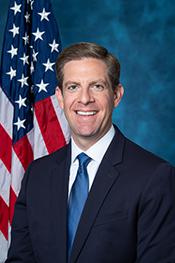0
0
0
Food and Farm Act
1/4/2025, 11:12 AM
Summary of Bill HR 1824
The Food and Farm Act, also known as Bill 118 hr 1824, is a piece of legislation currently being considered by the US Congress. The main goal of this bill is to address various issues related to food and agriculture in the United States.
One key aspect of the Food and Farm Act is its focus on supporting small and mid-sized farmers. The bill includes provisions that aim to provide these farmers with access to resources and support to help them succeed in the industry. This includes funding for research and development, as well as programs to help farmers adopt sustainable and environmentally friendly practices.
Additionally, the Food and Farm Act includes measures to improve food safety and ensure the quality of food products in the US. This includes funding for inspections and monitoring of food production facilities, as well as initiatives to promote healthy eating habits and combat food insecurity. The bill also addresses issues related to rural development, including funding for infrastructure projects in rural communities and programs to support rural businesses. This is aimed at helping to revitalize rural economies and create jobs in these areas. Overall, the Food and Farm Act is a comprehensive piece of legislation that seeks to address a wide range of issues related to food and agriculture in the United States. It is designed to support farmers, improve food safety, and promote rural development, all with the goal of creating a more sustainable and secure food system for the country.
One key aspect of the Food and Farm Act is its focus on supporting small and mid-sized farmers. The bill includes provisions that aim to provide these farmers with access to resources and support to help them succeed in the industry. This includes funding for research and development, as well as programs to help farmers adopt sustainable and environmentally friendly practices.
Additionally, the Food and Farm Act includes measures to improve food safety and ensure the quality of food products in the US. This includes funding for inspections and monitoring of food production facilities, as well as initiatives to promote healthy eating habits and combat food insecurity. The bill also addresses issues related to rural development, including funding for infrastructure projects in rural communities and programs to support rural businesses. This is aimed at helping to revitalize rural economies and create jobs in these areas. Overall, the Food and Farm Act is a comprehensive piece of legislation that seeks to address a wide range of issues related to food and agriculture in the United States. It is designed to support farmers, improve food safety, and promote rural development, all with the goal of creating a more sustainable and secure food system for the country.
Congressional Summary of HR 1824
Food and Farm Act
This bill reauthorizes and modifies several Department of Agriculture (USDA) programs that address
- commodity support,
- crop insurance,
- conservation,
- food assistance,
- nutrition,
- farm credit,
- beginning farmers and ranchers,
- food waste,
- research and educational programs,
- animal welfare, and
- regional food systems.
The bill modifies agriculture and nutrition policies to
- repeal the Agriculture Risk Coverage Program and the Price Loss Coverage Program;
- impose additional limits on farm subsidies;
- extend crop insurance premium subsidies to farmers who plant crops to reduce erosion;
- require recipients of farm subsidies to comply with additional conservation requirements;
- authorize increased funding for conservation programs;
- authorize additional assistance under the Environmental Quality Incentives Program for organic farmers;
- establish a loan program for conservation-based structural improvements;
- increase Supplemental Nutrition Assistance Program benefits;
- establish tax credits for the sale of qualified farming property to socially disadvantaged farmers or ranchers, veteran farmers or ranchers, and beginning farmers or ranchers (and the purchase of farming property by such farmers or ranchers);
- establish the Office of Food Waste within USDA;
- authorize additional funding for research and education programs;
- establish an independent animal welfare certification tax credit;
- require USDA to comply with certain animal welfare standards at federal agricultural research centers; and
- expand grant and loan programs for local and regional food systems.
Read the Full Bill
Current Status of Bill HR 1824
Bill HR 1824 is currently in the status of Bill Introduced since March 28, 2023. Bill HR 1824 was introduced during Congress 118 and was introduced to the House on March 28, 2023. Bill HR 1824's most recent activity was Referred to the Subcommittee on Work and Welfare. as of December 17, 2024
Bipartisan Support of Bill HR 1824
Total Number of Sponsors
3Democrat Sponsors
3Republican Sponsors
0Unaffiliated Sponsors
0Total Number of Cosponsors
8Democrat Cosponsors
8Republican Cosponsors
0Unaffiliated Cosponsors
0Policy Area and Potential Impact of Bill HR 1824
Primary Policy Focus
Agriculture and FoodAlternate Title(s) of Bill HR 1824
Food and Farm Act
Food and Farm Act
To reform the safety net for farmers and ranchers, enhance soil, water, and habitat conservation, encourage beginning farmers and ranchers, strengthen nutrition for Americans, support agriculture research and innovation, reduce food waste, improve animal welfare, and invest in regional food systems, and for other purposes.
Comments
Sponsors and Cosponsors of HR 1824
Latest Bills
Moab UMTRA Project Transition Act of 2025
Bill S 1321December 11, 2025
Federal Mechanical Insulation Act
Bill HR 3474December 11, 2025
Providing for consideration of the bill (H.R. 2550) to nullify the Executive Order relating to Exclusions from Federal Labor-Management Relations Programs, and for other purposes.
Bill HRES 432December 11, 2025
Protecting Our Courts from Foreign Manipulation Act of 2025
Bill HR 2675December 11, 2025
Tipped Employee Protection Act
Bill HR 2312December 11, 2025
A bill to redesignate the National Historic Trails Interpretive Center in Casper, Wyoming, as the "Barbara L. Cubin National Historic Trails Interpretive Center".
Bill S 790December 11, 2025
Mississippi River Basin Fishery Commission Act of 2025
Bill HR 1514December 11, 2025
Litigation Transparency Act of 2025
Bill HR 1109December 11, 2025
Southcentral Foundation Land Transfer Act of 2025
Bill HR 3620December 11, 2025
Enduring Justice for Victims of Trafficking Act
Bill S 2584December 11, 2025
Healthy Food Financing Initiative Reauthorization Act of 2023
Bill HR 1509March 6, 2024





